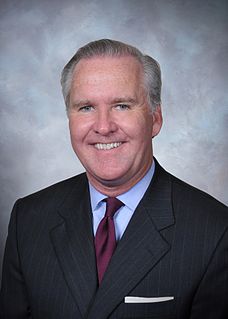A Quote by Bob Buckhorn
Most of the major consumer-goods companies roll out their marketing programs in the I-4 corridor. It reflects what America looks like.
Related Quotes
Over the past 60 years, marketing has moved from being product-centric (Marketing 1.0) to being consumer-centric (Marketing 2.0). Today we see marketing as transforming once again in response to the new dynamics in the environment. We see companies expanding their focus from products to consumers to humankind issues. Marketing 3.0 is the stage when companies shift from consumer-centricity to human-centricity and where profitability is balanced with corporate responsibility.
One of the weaknesses of Indian industry is that in many areas.. like consumer goods.. it is very fragmented. Individually, the companies might not be able to survive. What is needed is a consortium of like companies in one industry, presenting a strong front to the multinationals. The Swiss watch industry did this.
One thing the humanitarian world doesn't do well is marketing. As a journalist, I get pitched every day by companies that have new products. Meanwhile, you have issues like clean water, literacy for girls, female empowerment. People flinch at the idea of marketing these because marketing sounds like something only companies do.
I found marketing to be highly descriptive and prescriptive, without much of a foundation in deep research. I brought in economics, organization theory, mathematics, and social psychology in my first edition of Marketing Management in 1967. Today Marketing Management is in its 15th edition and remains the world's leading textbook on marketing in MBA programs. Subsequently, I wrote two more textbooks, Principles of Marketing and Marketing: an Introduction.
I'm a staunch believer in the effect of pop culture - including advertising and the internet - on the young. Pop culture in its narrowest sense - mass-produced film, TV, and music - either truly reflects what's up in youth culture, or it reflects what youth-filled focus groups have told marketing companies that they want to consume.
My primary early interest was in marketing and my aim was to improve its theories, methods and tools. Early on I pressed companies to adopt a consumer orientation and to be in the value creation business. I didn't pay much attention to the social responsibilities of business until later. Now I am pressing companies to address the triple bottom line: people, the planet, and profits. I found that companies were too much into short term profit maximization and they needed to invest more in sustainability thinking.
I'll also make sure that America has trade relations with China that work for us. I've watched year in and year out as companies have shut down and people have lost their jobs because China has not played by the same rules, in part by holding down artificially the value of their currency. It holds down the prices of their goods. It means our goods aren't as competitive and we lose jobs. That's got to end.
Do you want to get rid of the rules of the road? Do you want to let everybody just do whatever they want to do? Or do you want to really look out for the consumer, look out for the American people, and figure out ways to create and foster an environment where companies want to double down on America?































